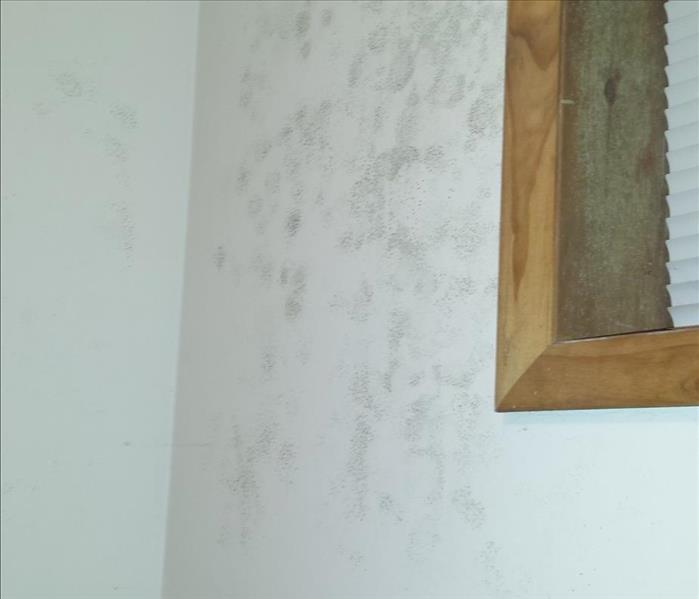So You Found Mold, Now What?
9/19/2017 (Permalink)
 Mold from a untreated water disaster can be the ideal conditions for mold to grow. here it is manifesting itself onto the walls of this home .
Mold from a untreated water disaster can be the ideal conditions for mold to grow. here it is manifesting itself onto the walls of this home .
So You’ve Found Mold, Now What?
The first thing you will want to do is determine the severity of the mold growth. The biggest red flag will be a musty or moldy smell. If this odor is present, you have mold. The second and most obvious tell-tale sign will be spotty, mold stained walls, floors, ceiling, etc.
Next, you will want to determine the source of the mold growth. Has a water leak occurred or was the mold as a result of home inactivity? If a water leak has occurred, it must be fixed as soon as possible. If the presence of mold is obvious, the most common practice for real estate agents is to have a third party inspection to assess the situation. Some agents have found it helpful to have the inspection conducted before putting the house on the market. This way, if a mold problem is found, it will give them a chance to properly assess the problem and determine the proper steps to remediate. If you do choose a mold remediation company, always look for qualified specialists that will follow the EPA guidelines for mold clean up. [EPA 402-K-02-003] (Note: It is NEVER recommended to use chlorine bleach (commonly known as laundry bleach) to treat mold growth. Bleach is extremely toxic and will only make the mold return worse than before.) A knowledgeable inspector will recommend cleaning the mold with a non-toxic detergent and then applying a moisture barrier to prevent any future mold growth. I can’t emphasize how important this step is and how it must not be overlooked. Cleaning is NEVER enough with mold. Applying a moisture barrier will keep away further mold growth and protect future homeowners from the many health hazards of toxic mold exposure. In some cases, if the mold has spread into the internal structure of the home, you may need to contact additional services to replace or repair the materials affected.
Review the Following Tips To Reduce Liability and Feel Confident You Have Taken the Proper Steps To Treat Mold
- During your personal inspection of the home, always pay attention to the presence of mold or mildew odors.
- Remember, cleaning is never enough! Dead or alive, mold spores can still remain allergenic. Always insist on a moisture barrier that penetrates deep into the cleaned material to protect against future mold growth.
- Always be weary of an inspector or remediation company that recommends the use of bleach to clean mold. The EPA and OSHA have advised against the use of bleach as an effective means to clean mold. [http://www.epa.gov/mold/mold_remediation.html] [https://www.osha.gov/dts/shib/shib101003.html]
- It is always good to insist that a potential buyer have his or her own independent inspection conducted. If it is agreed upon that the buyer will remediate the problem, never settle for the “what if’s” in an unqualified mold remediation company. Educate the buyer! Share your knowledge about the hazards of bleach and help them decide on the proper products/company to use. In some states, real estate agents can be liable for years after the sale of a home. Using the proper products to clean and prevent mold will give you the peace of mind that the job was done correctly and the mold will not return.
Equipped with the basic knowledge of mold and how to properly treat and prevent it, you will be much better prepared to tackle disclosure and possible liability issues.
If you need advice call SERVPRO of Carbondale/Clarks Summit/Old Forge, Lackawanna Counties premier mold Remediation Company.






 24/7 Emergency Service
24/7 Emergency Service